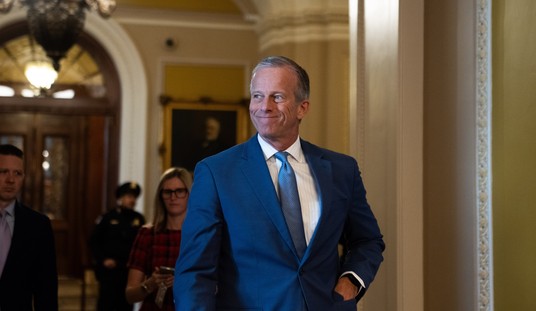Imagine there's no heaven
It's easy if you try
No hell below us
Above us only sky
Imagine all the people living for today
Welcome to Washington, DC, where some folks are doing their best John Lennon impressions, asking Americans to imagine “what if” conservatives didn’t mount a legislative fight against Obamacare this fall – a fight that still continues.
The folly of this type of political counterfactual thinking is undeniable, but I’ll play along for fun.
What if, instead of throwing its political energy into a failing effort to stop President Obama’s stimulus in 2009, the Republican Party spent the months of January and February finding ways to working with the man who had won more votes than any other person in U.S. history?
If the GOP had taken that path, Pennsylvania Senator Arlen Specter would not have felt compelled to switch political parties, as he did on April 28, 2009. Specter, of course, was one of just three congressional Republicans to support Obama’s stimulus.
But it didn't happen. The GOP chose instead to embark on its ill-fated drive to fight Obama’s stimulus. When it became law, the party became weaker as Specter switched parties, giving the Democrats a 60-vote super majority in the Senate. Just eight months after switching parties, Specter proved to be the decisive 60th vote in for Obamacare, which passed the Senate on Christmas Eve.
To paraphrase Joe Biden, this is a bunch of malarkey.
We’ll never know if a go-along-to-get-along mentality on the stimulus would have made the Republican Party stronger and thus more likely to have stopped Obamacare, or whether the capitulation would have made the party weaker. And it doesn’t matter for two reasons: 1) conservative principles demanded a fight on the stimulus; and 2) you cannot change the past.
Recommended
Fast forward to today.
Some right-leaning pundits are wasting precious key strokes playing the same type of “what if” game. Here is a brief snippet of Byron York’s counterfactual:
“And the public would likely be interested. A number of polls have shown that a majority of Americans have very little detailed knowledge of Obamacare. For them, the health care law was always something that was a year, or two, or three, away. But now it's here, and they'll need to learn about it, and fast. The Republican campaign would have filled in a lot of knowledge gaps, at just the moment Obamacare was finally arriving in Americans' lives.”
Those saying the legislative fight to address Obamacare wasn’t worth are basically upset because they missed an opportunity for a public relations campaign. Why mount a public relations campaign? To win the mid-term elections next year and then capture the White House in 2016. Proponents of this wait-and-see strategy promise that come 2017 we will be able to stymie Obamacare.
A sustained public relations campaign and a promise is little comfort to Robert Hare and Gregory Rothrock, both of whom were profiled by the Albuquerque Journal on Sunday. Their plans, bought from Presbyterian Healthcare Services, will become illegal on January 1, 2014 thanks to Obamacare. The Detroit Free Press reported 146,000 Michiganders will face loss of cheap policies thanks to the law. One insurance broker told the Chicago Tribune “I'm telling (clients) that everything they know historically about health plans has changed.”
“ObamaCare is going to be the end of the American free-enterprise health-care system,” Heritage Action CEO Michael Needham told the Wall Street Journal over the weekend. “We needed a plan to stop it. And if anybody has a plan other than what we're proposing; let's discuss it." But none of the counterfactuals you will hear in the coming days and months would have addressed these problems.
Americans suffering under the burden of Obama’s economy and health care regime don’t have the luxury of engaging in imaginary what if gamesmanship. They are just looking for someone in Washington to stand up and fight for them right now, not in 2017.























Join the conversation as a VIP Member